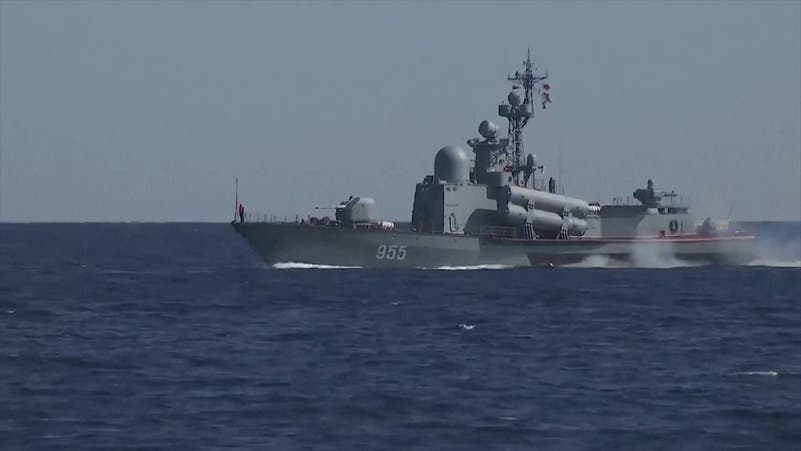New rounds of talks between Ukrainian and American representatives concluded in Saudi Arabia on Tuesday, following a U.S.-Russia meeting.
The White House announced on Tuesday that “Russia and Ukraine have pledged to cease hostilities in the Black Sea,” clarifying that Kyiv has committed to “halting attacks in the Black Sea.”
The Ukrainian Defense Minister, leading the Ukrainian delegation in the Riyadh talks, confirmed that agreements had been reached with the U.S. to ensure safe navigation in the Black Sea and enforce a complete ban on attacks against energy infrastructure.
He stated: “All parties agreed to ensure safe navigation, refrain from the use of force, and prevent commercial vessels from being used for military purposes in the Black Sea. All parties also agreed to implement presidential agreements on a full ban on strikes against energy infrastructure in Ukraine and Russia.”
Ukraine requested additional consultations on Tuesday to settle the “details” of the agreements announced by the U.S., which stated that both Kyiv and Moscow had pledged to avoid strikes in the Black Sea after separate talks in Saudi Arabia.
The Ukrainian Defense Minister emphasized the need for “additional technical consultations as soon as possible to finalize all details and technical aspects of implementing, monitoring, and enforcing the arrangements.”
Ukraine warned on Tuesday that movements of Russian warships “beyond the eastern part” of the Black Sea would violate the U.S.-mediated agreement between the two countries to halt the “use of force” in the region.
The Ukrainian Defense Minister clarified that if Russian warships moved from the eastern part of the Black Sea, “Ukraine would have the full right to exercise self-defense.”
The White House stated that “the U.S. and Ukraine agreed on Washington’s commitment to assist in prisoner-of-war exchanges.” It added that the U.S. would continue “facilitating negotiations between Kyiv and Moscow in Riyadh.”
A written White House statement following the expert-level meeting between Russia and the U.S. in Riyadh noted that Washington and Moscow would continue working toward lasting peace in Ukraine.
The statement read: “The U.S. and Russia will continue working together to achieve a durable and lasting peace. The U.S. reaffirmed the principled stance on the need to stop bloodshed on both sides of the Russian-Ukrainian conflict as a prerequisite for a sustainable peaceful resolution. To this end, the U.S. will continue facilitating negotiations between the two sides for a peaceful resolution based on the agreements reached in Riyadh.”
Russia and the U.S. agreed to ensure navigation safety and prevent the use of force in the Black Sea, according to a written White House statement issued after the Russian and American expert groups met in Riyadh.
The document dedicated to “the outcomes of the U.S. and Russian expert groups on the Black Sea in Riyadh from March 23 to 25, 2025” stated: “The U.S. and Russia agreed to ensure safe navigation, avoid the use of force, and prevent commercial vessels from being used for military purposes in the Black Sea.”
Separately, the U.S. announced on Tuesday that it would support Russian fertilizer exports after declaring it would begin lifting agricultural sanctions imposed due to Russia’s invasion of Ukraine.
A White House statement following talks on the war in Saudi Arabia said: “The U.S. will assist Russia in restoring its access to the global agricultural export market, reducing maritime insurance costs, and improving port and payment system access for such transactions.”
Russia described its dialogue with the U.S. as “useful” though “not easy,” calling on Tuesday for broader discussions involving the UN and other countries. Reports indicated that the Russian delegation had left Saudi Arabia.
The Kremlin stated it was still analyzing the results of Monday’s meeting but confirmed it would not initiate their publication, reiterating Moscow’s demand to revive the Black Sea grain deal and ease restrictions on its agricultural exports.
Negotiations aimed at ending the war in Ukraine continued on Tuesday in Riyadh, with high-level delegations from Ukraine and the U.S. meeting to follow up on Russian-American talks and discuss a proposed ceasefire






